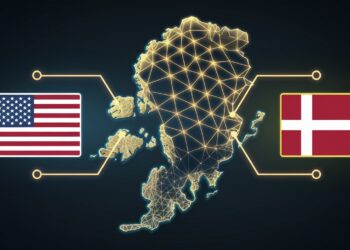In a move decried by human rights advocates as a draconian assault on free expression, Vietnam is set to implement one of the world’s strictest internet laws on December 25th. The new legislation, known as Decree 147, will compel social media companies to verify the identities of their users, retain their data, and provide it to authorities upon request. Critics contend this latest crackdown reveals the communist government’s increasing intolerance for online dissent as it seeks to exert totalitarian control over the digital sphere.
Mandatory Identity Verification Sparks Fears
Under the provisions of Decree 147, tech giants like Facebook, YouTube, and TikTok must validate account holders’ identities by collecting personal data such as phone numbers, government ID details, full names, and dates of birth. Companies are obligated to store this sensitive information and surrender it to the Ministry of Information and Communications or the powerful Ministry of Public Security upon demand. The new rules apply to all “foreign organizations, enterprises, and individuals” operating in Vietnam’s cyberspace.
By abolishing online anonymity, the law may expose political dissidents and government critics to surveillance and suppression, chilling free speech. Ho Chi Minh City blogger Nguyen Hoang Vi cautions the requirements could encourage self-censorship as users avoid expressing views that may jeopardize their safety, “ultimately harming the overall development of democratic values” in the nation.
“Many people work quietly but effectively in advancing the universal values of human rights.”
– Nguyen Hoang Vi, blogger and activist
Dissent Silenced Under Guise of ‘Sovereignty’
Government officials assert the decree will “regulate behavior in order to maintain social order, national security, and national sovereignty in cyberspace.” However, given the regime’s track record of harshly punishing peaceful criticism, many suspect national security is a mere pretext for quashing dissent.
In recent months, Vietnam has jailed multiple influential bloggers and journalists for the crime of “publishing anti-state information.” YouTube activist Duong Van Thai was sentenced to 12 years for livestreams critical of the government, while author Huy Duc was arrested for writings that “violated the interests of the state.” By eliminating online anonymity, Decree 147 may make it even easier for the one-party state to identify and detain its detractors.
Curbing Gaming Addiction or Constricting Commerce?
Beyond policing speech, the law introduces restrictions ostensibly aimed at preventing video game addiction among youth. Companies must enforce a 60-minute session limit for players under 18, capped at 180 minutes per day. High school student Nguyen Minh Hieu doubts the constraints will prove effective, noting games are inherently designed to be habit-forming.
The identity verification mandate may also ensnare social media influencers and online merchants, as only authenticated accounts are permitted to livestream. In a country where 20 million use TikTok and a burgeoning social commerce scene relies on streaming sales, the requirement could constrict a thriving sector of the digital economy.
Stifling Statutes Draw Global Condemnation
International human rights watchdogs have roundly rebuked Decree 147, with Human Rights Watch’s Asia director lambasting the “draconian” law as an added tool for censorship. Referencing the 2018 cybersecurity bill that drew fierce criticism from the US and EU for emulating Chinese-style internet policing, they contend the new situation neither protects the public nor respects fundamental rights.
“Vietnam’s new Decree 147 and its other cybersecurity laws neither protect the public from any genuine security concerns nor respect fundamental human rights.”
– Patricia Gossman, Human Rights Watch
Compliance Quandaries for Tech Titans
The decree places major international platforms in a precarious position, forced to either conform to invasive rules that violate their core principles or risk severe repercussions in a major market. Meta, Google, and TikTok have thus far remained silent on how they plan to navigate the stringent guidelines, which go into full force on December 25th.
With over half of Vietnam’s 100 million citizens active on social networks, the stakes for these tech behemoths are immense. Yet complicity in suppressing free speech and surrendering sensitive user data could invite backlash from customers and lawmakers worldwide, thrusting them into a high-stakes compliance conundrum.
“Foreign organizations, enterprises, and individuals must verify users’ accounts and store that information alongside their full name and date of birth.”
– Decree 147
A Dire Portent for Internet Freedom
As the communist country further tightens its grip on the digital domain, Decree 147 deals a grievous blow to online expression in Vietnam. By nullifying the web’s potential as a safe haven for dissent, it escalates an already oppressive environment where voicing alternative views can carry devastating consequences.
- Eradicates online anonymity, enabling surveillance of critics
- Expands invasive data harvesting and retention requirements
- Imposes content takedown demands with 24-hour deadlines
The draconian dictate delivers a chilling message – in the Party’s eyes, cyberspace is simply an extension of its authoritarian domain, where no deviation from official doctrine will be tolerated. As other illiberal regimes rush to impose their own repressive regulations, Decree 147 may be a dire portent of a new normal, one where the internet’s liberating potential is gradually strangled by the callous hand of state control.








